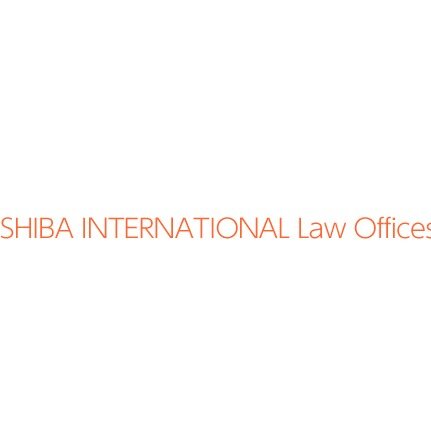Best Corporate & Commercial Lawyers in Tokyo
Share your needs with us, get contacted by law firms.
Free. Takes 2 min.
List of the best lawyers in Tokyo, Japan
About Corporate & Commercial Law in Tokyo, Japan
Corporate and commercial law in Tokyo, Japan covers all legal matters related to company formation, business operations, commercial transactions, mergers and acquisitions, regulatory compliance, employment, and dispute resolution. Tokyo, being Japan's capital and largest business hub, is home to many domestic and multinational companies. As a result, the legal landscape is dynamic and highly regulated, requiring expertise in both local and international business standards.
Why You May Need a Lawyer
Navigating corporate and commercial law in Tokyo can be complex due to strict statutory requirements and unique business practices. Common scenarios where legal assistance becomes essential include:
- Establishing a new business, including company registration and licensing
- Negotiating and drafting commercial contracts
- Complying with Japanese company regulations and labor laws
- Handling mergers, acquisitions, or business restructuring
- Dealing with shareholder disputes or corporate governance issues
- Protecting intellectual property rights
- Addressing consumer protection and commercial litigation
- Responding to regulatory investigations
- Resolving international business matters involving Japanese entities
Legal professionals help ensure compliance, minimize risk, and streamline complex transactions for both new and established businesses in Tokyo.
Local Laws Overview
Corporate and commercial legal matters in Tokyo are primarily governed by the Companies Act, Commercial Code, Civil Code, Financial Instruments and Exchange Act, and other related regulations. Key aspects include:
- Company Structure: Common forms include Kabushiki Kaisha (KK - joint stock company) and Godo Kaisha (GK - limited liability company), each with different formation and governance requirements.
- Shareholder Rights: Local law sets out rights for shareholders regarding voting, dividends, and information, which must be respected in company operations.
- Employment Regulations: Labor standards are strictly regulated, covering contracts, working hours, dismissal, and workplace conditions.
- Commercial Contracts: Contracts should comply with Japanese laws and often require careful negotiation, particularly when involving foreign businesses.
- Mergers and Acquisitions: Transactions must comply with antitrust laws and may require approval from government agencies.
- Foreign Investment: Some sectors require foreign investors to notify or obtain approval from Japanese authorities.
- Dispute Resolution: Most disputes are settled in Japanese courts or via arbitration, which follows strict procedures.
Frequently Asked Questions
What are the common types of company structures in Japan?
The main business structures are Kabushiki Kaisha (KK), similar to a corporation, and Godo Kaisha (GK), similar to a limited liability company. Other forms such as sole proprietorships and partnerships are also available but less common for larger ventures.
Is it necessary to have a Japanese partner to set up a company in Tokyo?
No, foreigners can establish and own companies in Japan without a local partner, but certain procedures must be followed, including securing a registered address and, in some cases, a resident director.
Are company bylaws or articles of incorporation required?
Yes, all companies in Japan must prepare and submit articles of incorporation during the registration process, outlining the company's purpose, structure, and internal regulations.
How are commercial contracts enforced in Tokyo?
Commercial contracts are legally binding if they meet Japanese legal requirements. They can be enforced through the courts or alternative dispute resolution mechanisms such as mediation or arbitration.
What are the main labor law requirements for businesses in Tokyo?
Employers must observe employment contracts, ensure safe working conditions, comply with statutory working hours, provide paid leave, and follow procedures before terminating employees. Labor laws are protective of employee rights.
How are cross-border transactions regulated?
Cross-border transactions may be subject to foreign exchange regulations, import-export laws, and specific sectoral restrictions. Contracts with international parties often require careful consideration of jurisdiction and governing law.
Are there any restrictions on foreign investment?
Certain industries, such as defense, telecommunications, and energy, may require prior notification or approval for foreign investment under the Foreign Exchange and Foreign Trade Act.
How can intellectual property be protected in Japan?
Intellectual property can be protected through registration of patents, trademarks, and copyrights with the Japan Patent Office. Enforcement is possible through administrative action or court proceedings.
What is the process for handling business disputes?
Business disputes can be resolved via litigation in Japanese courts or through arbitration and mediation. Many commercial agreements specify arbitration to streamline international dispute resolution.
What should I do if my business faces regulatory investigation?
Immediate legal consultation is advised. Gather all relevant documentation, cooperate with authorities as required, and follow your lawyer's guidance to ensure compliance with procedural rules.
Additional Resources
If you need information or assistance on corporate and commercial law matters in Tokyo, the following organizations may be helpful:
- Japan Ministry of Justice - Regulatory information and laws
- Japan Patent Office - Intellectual property matters
- Tokyo Metropolitan Government - Local business resources
- Japan External Trade Organization (JETRO) - Support for foreign businesses
- Tokyo Chamber of Commerce and Industry - Business advisory services
- Japan Federation of Bar Associations - Finding legal representation
Next Steps
If you require legal advice or representation for corporate and commercial matters in Tokyo, consider the following steps:
- Clearly outline your business goals and specific legal needs
- Compile all relevant documents, contracts, and business records
- Research and contact a reputable law firm or legal professional with experience in Japanese corporate and commercial law
- Schedule an initial consultation to discuss your situation and receive guidance on the next steps
- Follow your lawyer's advice regarding compliance, risk management, contract drafting, and dispute resolution
Proactive legal consultation can help your business operate smoothly, meet regulatory obligations, and avoid costly disputes in Tokyo's dynamic business environment.
Lawzana helps you find the best lawyers and law firms in Tokyo through a curated and pre-screened list of qualified legal professionals. Our platform offers rankings and detailed profiles of attorneys and law firms, allowing you to compare based on practice areas, including Corporate & Commercial, experience, and client feedback.
Each profile includes a description of the firm's areas of practice, client reviews, team members and partners, year of establishment, spoken languages, office locations, contact information, social media presence, and any published articles or resources. Most firms on our platform speak English and are experienced in both local and international legal matters.
Get a quote from top-rated law firms in Tokyo, Japan — quickly, securely, and without unnecessary hassle.
Disclaimer:
The information provided on this page is for general informational purposes only and does not constitute legal advice. While we strive to ensure the accuracy and relevance of the content, legal information may change over time, and interpretations of the law can vary. You should always consult with a qualified legal professional for advice specific to your situation.
We disclaim all liability for actions taken or not taken based on the content of this page. If you believe any information is incorrect or outdated, please contact us, and we will review and update it where appropriate.
Browse corporate & commercial law firms by service in Tokyo, Japan
Tokyo, Japan Attorneys in related practice areas.













